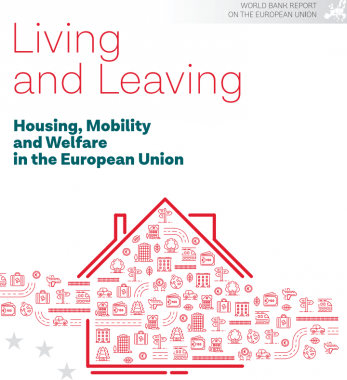Ηousing is at the heart of growing economic divides
The World Bank is warning Europe
Brussels, 3 December 2018 | Published in Economy
Availability and affordability of decent housing has become an important economic and social concern in the EU. This has accelerated in recent years, as housing price increases in metropolitan regions have often outpaced wage increases. Across Europe, people are anxious about their ability to find and afford decent housing. Young people and newcomers to cities are especially affected, while older generations owning homes in prime locations have benefited from the rise in the value of these assets.
The World Bank published in November the report 'Living and Leaving: Housing, Mobility and Welfare in the European Union'. The report confirms some of the key findings of Housing Europe’s 2017 'State of Housing in the EU' report that pointed at a real housing crisis emerging in major European cities, and sheds some further light on the link between trends in housing markets and inequalities.
Housing – the report points out - is at the heart of growing economic divides in Europe. This is because productivity growth, which comes with higher wages and better jobs, is concentrated in cities and industrial clusters. Yet, cities are precisely where housing prices are prohibitive. Land and housing assets are a source of wealth inequality, have an important impact on spatial inequality, and could potentially determine the degree of intergenerational mobility within a society.
After identifying lack of supply compared to demand as the main cause behind the lack of affordable housing, the report points at major challenges for policymakers and potential solutions such as ensuring that land use, rental and other regulations are consistent with incentives to spur residential construction.